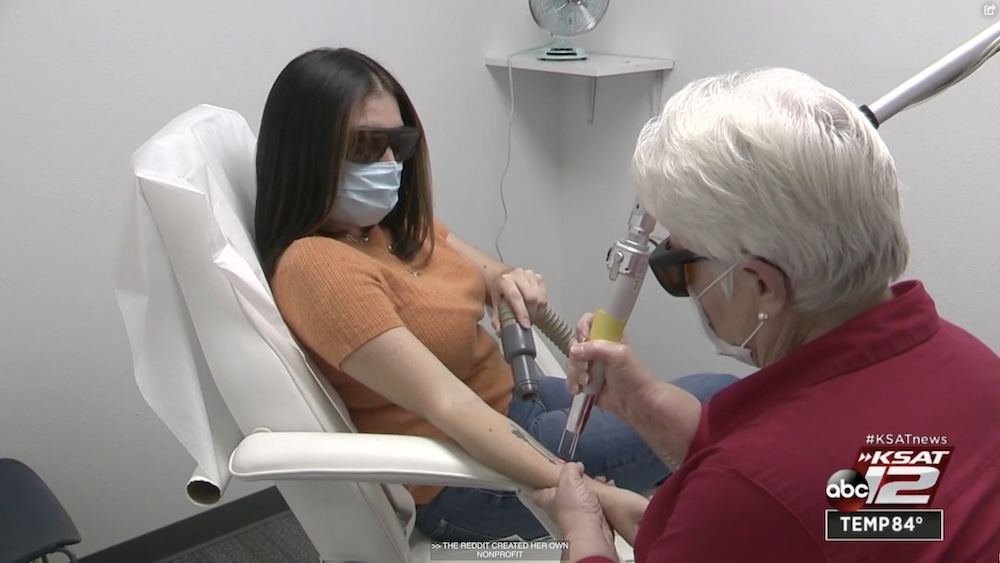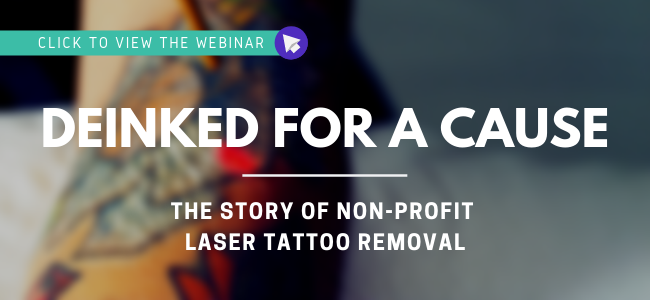The United States experienced a multitude of changes, challenges, and opportunities to grow during 2020. In a year filled with racial justice protests sparked by George Floyd’s killing in late May, we saw statues, monuments, schools, and other public spaces either removed or renamed as one of many responses to public outcry. Aesthetics professionals also witnessed this social reckoning on a personal front for their clients: covering up or removing tattoos reflecting racist ideology. According to this article by NPR, many tattoo artists across the country had a significant increase in requests to remove symbols of racism in tattoos during 2020, especially during the summer, with laser tattoo removal.
We’ve long used tattoos as a form of self-expression. When demands for change tested personal ideas and beliefs, many people found they could no longer don their tattoos they once chose proudly.
“Outgrowing” or falling out of love with old tattoos is a common reason people choose to remove their ink. Laser tattoo removal is a powerful tool for personal healing and moving forward, especially when used to rid patients of hateful symbols they no longer stand for. Instead of passing judgment on those that come to him for help removing their racist tattoos, social justice contributor Cory Fleischer chooses to help them move forward.
“I don’t care what your backstory is,” Fleischer says.
“I care about tomorrow. You want to erase it, I’m going to be there for you. I’m going to set it up for you. And we’re just going to move forward, and I’m going to give you a new way in life.”
Whether your unwanted tattoo reflects a one time mistake or long-held ideologies you longer believe in, choosing to undergo laser tattoo removal is an incredibly personal and physical reminder of your resolve to move forward.
The non-profit Atlanta Redemption Ink helps people transform painful marks from the past into symbols of triumph through tattoo cover-ups and removals. Specifically helping sex trafficking survivors, former gang members, and people with self-harm marks, Atlanta Redemption Ink told NPR that they’d noticed a massive influx in applications from people wanting to remove racist tattoos.
“We believe that the social justice movement of 2020, along with true heart-change and desire to see hate erased, is what has pushed that influx,” says Jessica Lamb, executive director and founder of Atlanta Redemption Ink.
Learn About Starting a Non-Profit Laser Tattoo Removal Center
Helping people erase reminders of racist ideologies is one way aesthetic professionals can use our skillsets and resources to improve our patients’ lives and, by extension, our communities. Astanza Laser is deeply passionate about #changinglives through aesthetic laser service, training, marketing support, and technology. We actively seek out partnerships with non-profits eager to offer free/heavily discounted laser tattoo removal services to their communities in need. We’re proud to partner with trailblazing organizations like Homeboy Industries, Community Action Partnership of San Luis Obispo County, the Jail Ministry of Elkhart County, and more.
The fresh start afforded to people by laser tattoo removal is truly life-changing, and it can little by little help move our nation from hate to hope. To learn more about how to get started with non-profit laser tattoo removal, click here or below to watch the pre-recorded webinar, “De-Inked for a Cause: The Story of Non-Profit Laser Tattoo Removal.”









